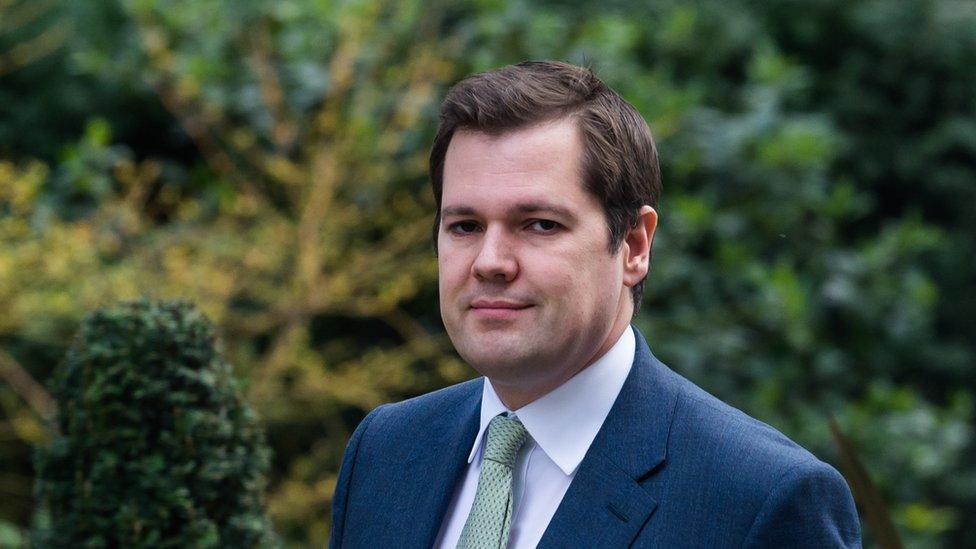Robert Jenrick: MPs say minister made 'serious mistakes' in planning case
- Published

Housing Secretary Robert Jenrick made "serious mistakes" over the controversial Westferry planning application, MPs have said.
The Commons housing committee has asked Mr Jenrick for more details about his contacts with developer and Tory donor Richard Desmond.
Boris Johnson said the matter was closed after correspondence, including texts between the two men was released.
But MPs said they "respectfully disagreed" with the PM's assessment.
The committee, which is led by Labour MP Clive Betts, has asked Mr Jenrick to appear before them on 13 July to answer questions about his involvement with the case and transparency in the planning process.
Mr Jenrick over-ruled a planning inspector when he approved the development of more than 1,500 flats on the site of the former Westferry print works in east London in January.
But following a challenge by Tower Hamlets council, the decision was subsequently ruled unlawful by the High Court, on the grounds of "apparent bias" in the decision-making process.
Mr Jenrick has rejected suggestions he was swayed by lobbying by Mr Desmond, including when he sat next to the businessman at a fundraising dinner and was briefly shown a video of the development.
In a letter to Mr Jenrick, Mr Betts said his committee was not accusing him of "deliberate wrongdoing".
'Neutral arbiter'
But he said the integrity of planning system and ministers' role in making decisions meant unresolved questions about "perceived conflicts of interest" in the case must be addressed.
"The documents do clearly demonstrate that serious mistakes were made during the process and that these put in doubt your ability to act as a neutral arbiter in this case and created a strong perception of bias," he wrote.
He has given Mr Jenrick until Monday to respond to 26 questions.
"The committee respectfully disagrees with the prime minister's assertion that the matter is closed and believe that there are important lessons to be learned," he added.
While continuing to look into the case and its wider implications, the committee is not currently considering calling any other witnesses to give evidence.
Mr Jenrick has insisted he approached the decision with an open mind and followed the rules, although he has admitted he could have done certain things better.